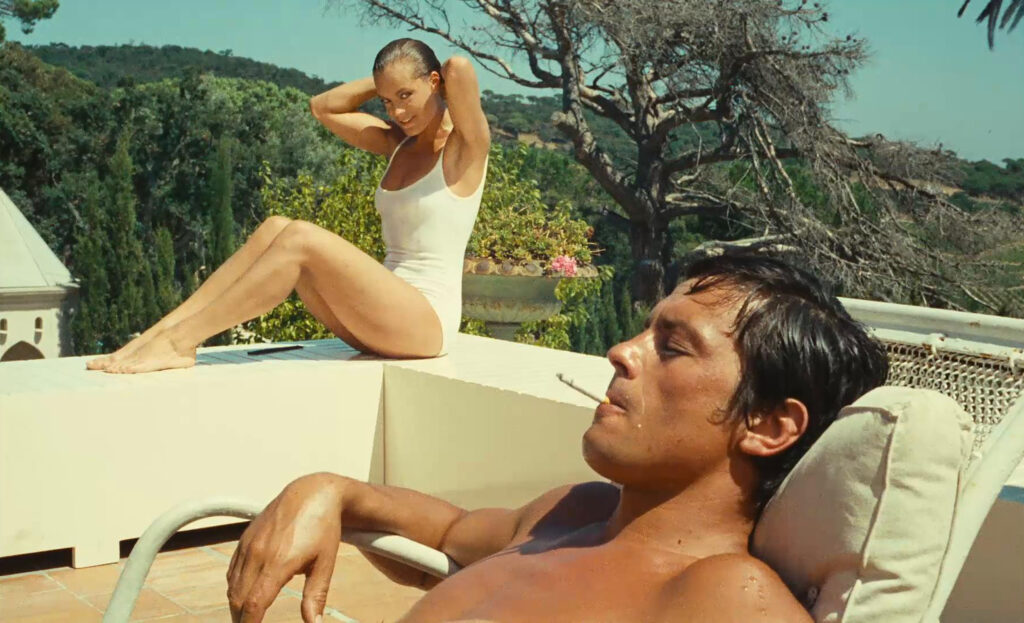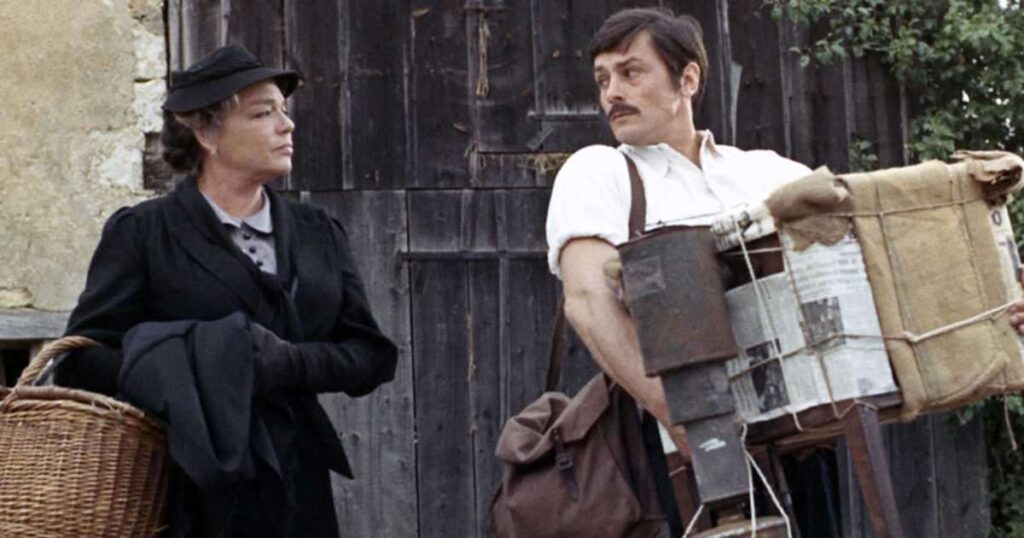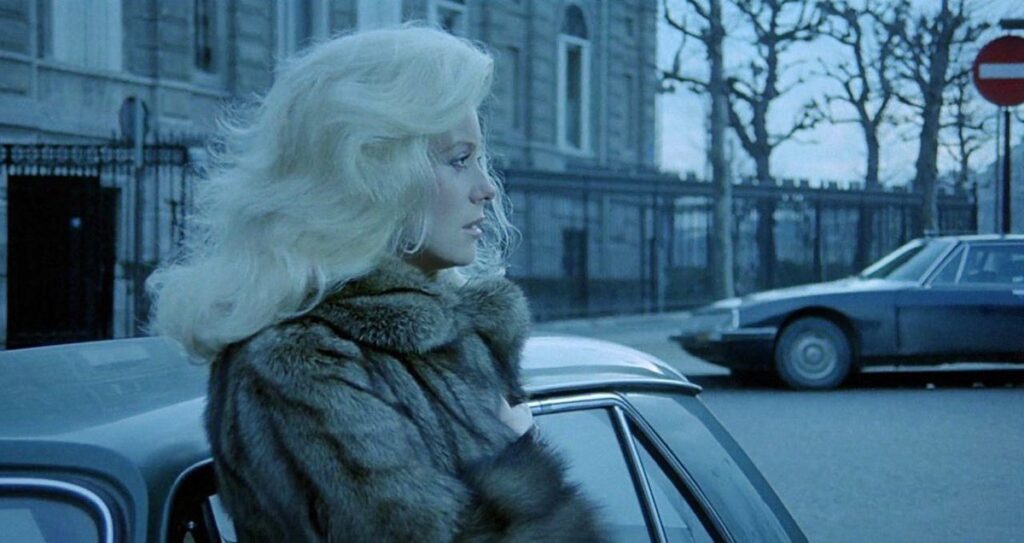Classic Film: La Piscine
Written by Ian Thomas Malone, Posted in Movie Reviews, Pop Culture
The prestige TV landscape has a certain fascination with beautiful rich people doing awful things in luscious settings. 1969’s La Piscine (titled The Swimming Pool internationally) takes two of France’s top stars of the era, Alain Delon and Romy Schneider, and deposits them in the Côte d’Azur. The dreamy narrative quickly descends into a gripping psychological thriller as the characters find themselves with little to do besides lay in the sun, basking in their own grievances.
Jean-Paul (Delon) and Marianne (Schneider) are staying at a friend’s villa for a month. The beautiful scenery of the French Riviera provides ample kindling for the non-stop sexual tension between the two, a relationship that’s just over the two years mark. Jean-Paul is a failed novelist with a perpetual chip on his shoulder, unhappy with his job at an advertising agency.
The arrival of an old friend, Harry (Maurice Ronet), and his daughter, Penelope (Jane Birkin), rekindles old flames and older grudges. Harry, a lover from Marianne’s past, and friend/rival to Jean-Paul, has done extremely well as a record producer, eager to rub his success in anyone and everyone’s faces. The hot sun provides more than adequate kindling for jealousy to transcend fantasy into reality.
As the title suggests, La Piscine takes place almost entirely around the swimming pool and its corresponding villa. The small cast and intimate setting work quite well for director Jacques Deray to craft his psychological case study into the ugly nature of human emotion. There’s barely any plot in the 124-minute narrative, but Deray brings a keen sense of timing to his pacing. The sleepy story never manages to drag, a highly impressive feat giving the scope of the production. If it weren’t for the swimming pool, the whole production could have been easily adapted into a stage play.
Delon and Schneider, who were in a long-term relationship that ended several years before the production, have a sense of chemistry that’s perfect for the narrative. Their passion is real, but it’s an aged sense of love, peppered with loss, never quite able to completely hide the scars of time. Summer’s lust stirs the emotions, surfacing a kind of innate sadness.
In Jean-Paul, longtime Delon fans will see a different side of the actor floating in the water. Delon has a knack for playing impeccably suave hotshots, mavericks with devil-may-care attitudes. Here, Jean-Paul does care, a vulnerability rarely seen from the iconic actor.
The summer months fly by in the blink of an eye. La Piscine delights in its slow-burn story, a gripping thriller powered by three lead actors at the height of their craft. The story itself is a little rougher around the edges. Deray doesn’t always display a clear sense of purpose for Birkin, whose Penelope frequently skirts between being an actual character and a mere object of fascination for the rest of the cast. Similarly, the backstory of Harry’s relationships with Jean-Paul and Marianne remains a bit unclear, receiving only scattershot mentions throughout the narrative that seems to contradict itself at times.
There’s a reason shows like Big Little Lies and The White Lotus throw unlikable rich people into exotic locations to be awful to each other. Hedonism tickles the mind, extreme wealth and lust eliciting naturally intense emotions. La Piscine understands that better than most, a masterpiece that packs quite a punch in modern times.













